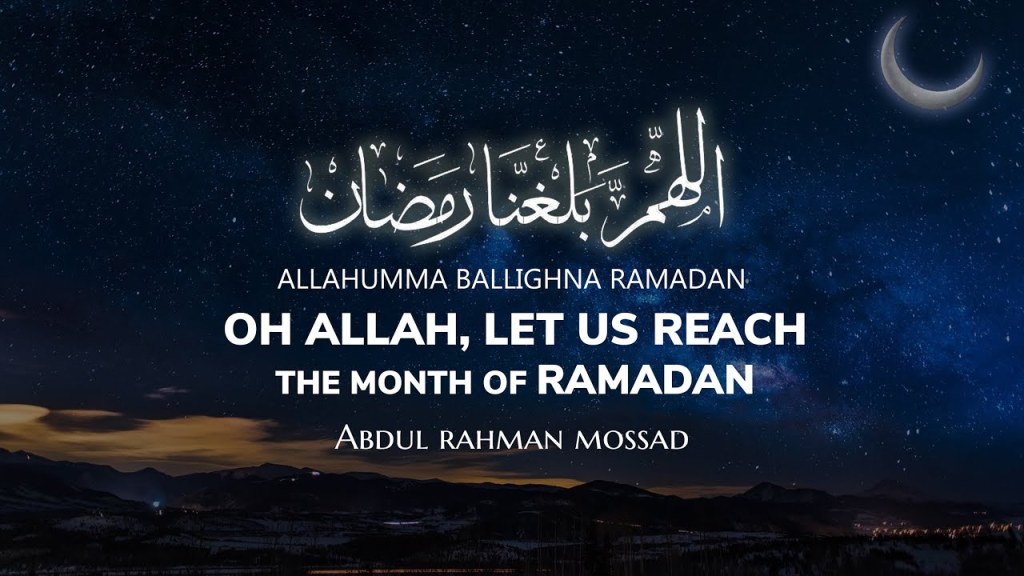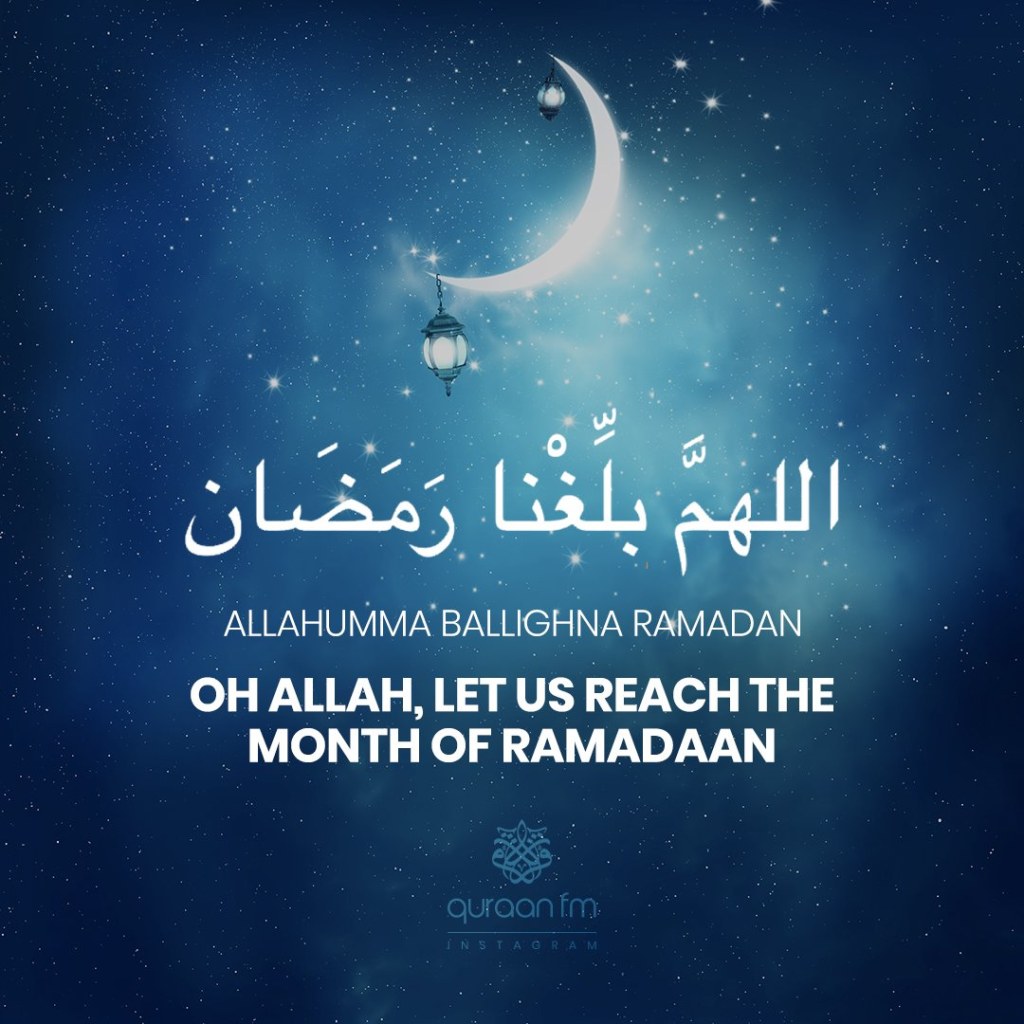Unlock The Blessings: Allahumma Ballighna Ramadan – Embrace The Power Of Fasting
Allahumma Ballighna Ramadan: A Blessed Month of Fasting and Spiritual Reflection
Introduction
Dear Ramadan enthusiasts,
2 Picture Gallery: Unlock The Blessings: Allahumma Ballighna Ramadan – Embrace The Power Of Fasting


As the holy month of Ramadan approaches, it is an opportune time to delve into the significance and blessings of this sacred period. Ramadan holds a special place in the hearts of Muslims worldwide, as it is a time of heightened spirituality, self-reflection, and acts of worship. In this article, we will explore the meaning and importance of the phrase ‘Allahumma Ballighna Ramadan’ and how it encapsulates the essence of this blessed month.
What is Allahumma Ballighna Ramadan?
Image Source: instagram.com
📜 ‘Allahumma Ballighna Ramadan’ is an Arabic phrase that translates to ‘O Allah, allow us to reach Ramadan.’ It is a supplication that Muslims make in the days leading up to the start of Ramadan, expressing their desire to witness and experience the blessings of this holy month. This phrase signifies the anticipation and eagerness of believers to engage in acts of worship, self-discipline, and spiritual growth during Ramadan.
Who Observes Ramadan?
🌍 Ramadan is observed by millions of Muslims around the world. It is an essential pillar of Islam and is obligatory for adult Muslims, with exceptions for those who are ill, pregnant, breastfeeding, menstruating, or traveling. Regardless of age, gender, or nationality, Muslims from all walks of life eagerly await the arrival of Ramadan every year, as it is a time of immense spiritual significance and communal unity.
When Does Ramadan Occur?

Image Source: ytimg.com
⏰ The Islamic calendar follows a lunar system, and the start of Ramadan is determined by the sighting of the new moon. It lasts for 29 or 30 days, depending on the lunar cycle. Muslims eagerly await the announcement of the sighting of the crescent moon, which marks the beginning of Ramadan. It is a time of anticipation and preparation for the intense spiritual journey that lies ahead.
Where is Ramadan Celebrated?
🕌 Ramadan is celebrated and observed by Muslims all over the world. From bustling cities to remote villages, Muslims come together in their homes, mosques, and community centers to engage in acts of worship, including fasting, prayer, charity, and recitation of the Quran. The spirit of Ramadan transcends geographical boundaries and unites Muslims in their devotion and commitment to their faith.
Why is Ramadan Significant?

Image Source: twimg.com
🌙 Ramadan holds immense significance in Islam as it commemorates the revelation of the Quran to the Prophet Muhammad (peace be upon him). It is a time of increased worship, self-reflection, and self-discipline. Fasting during Ramadan is an obligatory act of worship that instills qualities such as patience, gratitude, empathy, and self-control. It is also a time for Muslims to seek forgiveness, engage in acts of charity, and strengthen their relationship with Allah.
How is Ramadan Celebrated?
🌟 The primary act of worship during Ramadan is fasting from dawn to sunset. Muslims abstain from food, drink, and other physical needs during daylight hours. This practice serves as a reminder of the blessings of sustenance and encourages believers to empathize with those less fortunate. Additionally, Muslims engage in increased prayer, recitation of the Quran, and acts of charity. Ramadan is also a time for family and community gatherings, where meals are shared and bonds are strengthened.
Advantages and Disadvantages of Ramadan
Advantages:
1️⃣ Increased spiritual awareness and connection with Allah.
2️⃣ Development of self-discipline and self-control.
3️⃣ Strengthening of family and community bonds.
4️⃣ Cultivation of empathy and gratitude.
5️⃣ Opportunity for reflection and self-improvement.
Disadvantages:
1️⃣ Physical challenges such as hunger, thirst, and fatigue.
2️⃣ Adjustment of daily routine and sleep patterns.
3️⃣ Balancing work, school, and other commitments during fasting hours.
4️⃣ Potential health risks for individuals with certain medical conditions.
5️⃣ Social pressures and temptations that may test one’s commitment to fasting and spiritual practices.
Frequently Asked Questions about Allahumma Ballighna Ramadan
1. Is it necessary to say ‘Allahumma Ballighna Ramadan’?
Yes, it is a recommended supplication to express our desire to witness and experience the blessings of Ramadan.
2. Can non-Muslims participate in Ramadan activities?
While Ramadan is primarily observed by Muslims, non-Muslims can show support and respect for their Muslim friends and colleagues by being mindful of their fasting and offering words of encouragement.
3. What is the purpose of fasting during Ramadan?
Fasting in Ramadan is a form of worship that allows Muslims to develop self-discipline, empathy, and gratitude. It also serves as a means of seeking forgiveness and drawing closer to Allah.
4. Are there any exceptions to fasting in Ramadan?
Yes, individuals who are ill, pregnant, breastfeeding, menstruating, or traveling are exempt from fasting. They can make up for missed fasts at a later date or perform alternative acts of worship.
5. What can I do to make the most out of Ramadan?
Some tips to maximize the benefits of Ramadan include setting personal goals, increasing acts of charity, engaging in additional prayers and recitation of the Quran, seeking forgiveness, and maintaining a positive mindset throughout the month.
Conclusion
As we eagerly await the arrival of Ramadan, let us remember the significance of the phrase ‘Allahumma Ballighna Ramadan.’ It is a supplication that encapsulates our yearning to witness and experience the blessings of this holy month. Ramadan is a time for increased devotion, self-reflection, and acts of worship. Let us embrace this opportunity for spiritual growth, strengthen our connection with Allah, and strive to become the best versions of ourselves. May Allah accept our prayers, fasting, and good deeds during this blessed month.
Final Remarks
Disclaimer: The views and opinions expressed in this article are those of the author and do not necessarily reflect the official policy or position of any religious organization. The information provided is for general informational purposes only and should not be construed as religious advice or guidance. Readers are advised to seek professional guidance and consult with religious scholars for specific religious matters and practices.
This post topic: Ramadhan


